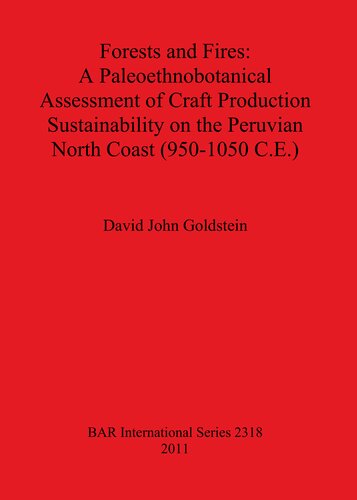

Most ebook files are in PDF format, so you can easily read them using various software such as Foxit Reader or directly on the Google Chrome browser.
Some ebook files are released by publishers in other formats such as .awz, .mobi, .epub, .fb2, etc. You may need to install specific software to read these formats on mobile/PC, such as Calibre.
Please read the tutorial at this link: https://ebookbell.com/faq
We offer FREE conversion to the popular formats you request; however, this may take some time. Therefore, right after payment, please email us, and we will try to provide the service as quickly as possible.
For some exceptional file formats or broken links (if any), please refrain from opening any disputes. Instead, email us first, and we will try to assist within a maximum of 6 hours.
EbookBell Team

4.1
40 reviewsDuring the Middle Sicán period (C.E. 950-1050) on the North Coast of Peru, artisans developed a sophisticated tradition of ceramic and metalworking production amidst dry coastal forests of the region. Organic fuel resources, specifically wood, clearly played a vital role in the manufacture of these objects; however, this component of production has been largely overlooked. Thus, a major gap in our understanding of the relationship between Sicán period production and the local landscape has developed. The Sicán Archaeological Project (SAP) suggests that the production of metal and ceramics during this period likely placed the local fuel resources under considerable stress. Yet, an evaluation of the archaeological data is essential to assess the degree of overexploitation, identifying the fuels used, their contexts for use, and their role in local ecology. This study interprets how Middle Sicán artisans met their fuel-wood requirements for production in light of easily endangered forest resources. An examination of the archaeological charcoal from Middle Sicán period kilns, hearths, and metal furnaces permits the reconstruction of fuel use and the ecological setting of production. This unique site demonstrates the concurrent production of metal and ceramics, as well as the presence of domestic activity. Using wood anatomy of fuels recovered from archaeological features, the author identified the fuel materials of different use contexts.